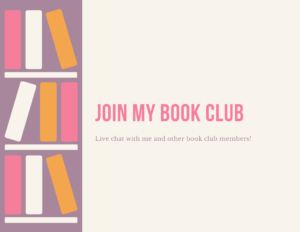Guest Post by Lori Verni-Fogarsi
Chick Lit Plus
Guest Author Article
“The Nitty Gritty Process of Being an Author”
By Lori Verni-Fogarsi, author of “Momnesia”
What kind of a title is that? For heaven’s sake! It sounds as if being an author is nitty. And gritty! Which it both is and isn’t. The truth is, if your goal is to have strangers read your book and have it be successful, there is far more involved than the pleasure of writing.
Everywhere I go, I meet people that say, “You’re a published author? Omigod! I have a great idea for a novel but can’t get around to writing it!” (This is largely because everyone I come across gets a bookmark foisted on them.) My advice? Just write it. Don’t worry about what you’re going to do with it later. Get your story out of your head and into the computer.
They look at me dubiously. “But how am I going to get it published?” My answer? “If you don’t write it, it can never be published.”
The next step is to be a cruel and brutal monster against your own work. How many words is it? More than 90,000? It’s too long. When I first finished “Momnesia,” it was 130,000 words and rest assured, finding 40,000 words to cut was extremely painful, yet necessary. Along the way, I did my spelling and punctuation corrections, and formatting.
Moving on, it’s time to let someone else mess with your work. And I don’t mean your mother, sister, or husband—not even if they’re an editor. I mean an impartial professional who has no personal stake in your life. Who will tell you if something stinks and praise you if it sings. Who knows that Roller Blades is supposed to be capitalized, and is not afraid to tell you that almost ALL of your parentheses need to be removed. They will identify characters that need development, inconsistencies in the timeline, and redundancies that cause readers to glaze over. Pay them. It’s worth it.
Here is the point where I could easily launch into a series of additional articles: Whether to seek an agent or self-publish, unusual aspects to keep in mind for your book’s cover, the roles of additional professionals, the marketing you’ll have to do. How to make your book stand out as the professional, highly readable work that it is (as opposed to an unedited, too long thing that people may read once but will never recommend).
One of the most common questions people ask is, “How long did the process take?” “Momnesia” took me a year to write, a year to edit, and a year to launch. As of the writing of this article, its success is still to be measured (release date was 3/16/12 in paperback and Kindle). “Everything You Need to Know About House Training Puppies and Adult Dogs” took two years. It was published in 2005 and I still receive a decent royalty check every quarter.
I hope you’ve enjoyed these tips! I invite you to join me on Facebook (www.facebook.com/LoriTheAuthor), and find additional resources on my website, (www.LoriTheAuthor.com). Happy authoring!
P.S: This article was 868 words. Too long! See? I had to edit it to a length that people will have time to read—all 526 words of it! (Um, perhaps still a teeny bit too long.)

